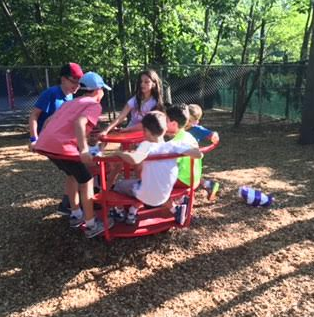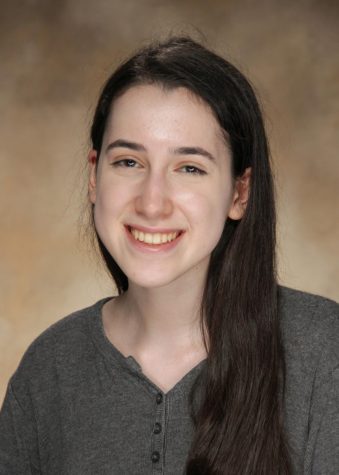Life outside the Promised Land

During the Back to School Carnival on Aug. 28 for all students, Israeli students spent their time snacking on frozen treats, frolicking on playground equipment and playing carnival games.
August 30, 2016
When sophomore Hallel Samson’s father transferred to Israeli Aerospace Industries North America two years ago, she and the rest of her family moved to a place very different than their home in Modi’in, Israel: Potomac, Md.
Since the 2011-2012 school year, approximately 85 Israeli students have attended CESJDS. This school year, four new Israeli students, all children of Israeli Embassy emissaries, join the Upper School community.
According to Hallel, JDS’ English for Speakers of Other Languages classes helped her translate her assignments in order to overcome her biggest challenge: the language barrier. Outside of school, she continued orienting herself with her new community by attending synagogue on Saturdays and speaking to classmates there.
While Hallel was able to acclimate to a new country through her neighborhood activities, when many Israeli families first move to the area they often do not know where to interact with other JDS students. Overcoming this challenge is part of the job of Hallel’s mother, JDS Israeli Community Liaison Roni Samson.
“I help them know more Israeli students in their grade who can be their buddies,” Roni said.
Roni is one of the first JDS employees who speaks to Israeli families inquiring about enrolling at JDS. After explaining to the Israeli families details about registration and how to get the books and supplies students need for their classes, Roni continues to aid the Israeli students in becoming fully acquainted with the school. This includes helping them to determine which staff member to contact if they have a problem, making sure that they are succeeding in their classes and updating the school administration on the Israeli students’ needs.
One objective of the school is to help the Israeli students feel comfortable with their general English-taught curriculum, and Roni ensures that the Israeli students continue to receive proper Hebrew instruction as well.
“I am in contact through the year to see if the kids receive what they need to maintain their Hebrew and their level, because they will be going to Israel in the end of the [assignment], so they need to be on the level of the Israeli students [living in Israel],” Roni said.
When Israeli students return to Israel, Roni stays in contact with them to monitor whether their time at JDS properly prepared them to “adjust back to the student life and the demands of the Israeli schools.”
In addition to supporting Israeli students in their studies, Roni also assists them with connecting to the whole school community. Roni helped organize events such as movies, lectures and parties for B’Yachad, a JDS social committee that aims to integrate both American and Israeli families.
“I try to join them together to be one community, one school community,” Roni said.
In the upcoming year, B’Yachad will run Bayit Cham, a previously successful program whose focus is for Israelis and Americans in the same grade to spend time together after school at one of the student’s homes. Last year, B’Yachad’s other activities included joint events with the Chabad Israeli Center and a Purim party open to the school community.
Apart from the events that JDS creates for Israeli Embassy families, the Israeli Embassy hosts community events for major holidays, such as an Erev Yom HaZikaron program at B’nai Israel Congregation. Roni wants to increase the interaction between the embassy and JDS students by inviting in JDS parents who work in the embassy to explain their jobs.
One of these parents is Israeli Embassy Deputy Chief of Mission Reuven Azar. Azar helps with managing the embassy, strengthening cooperation between different embassy departments and branches of the Israeli government, and assisting the Israeli ambassador with diplomatic matters.
Azar said that the embassy also works to serve the greater Jewish community by sponsoring Israeli artists, speaking to university students and working with nearby Jewish organizations.
“Whether it be the well-being of Israel or whether it be policy issues that have to do with freedom of religion [or] other issues that American Jews are concerned with, we attach a lot of attention to that,” Azar said.
Azar, who has had three children attend JDS during his two assignments in the United States, said that he is pleased with his experience.
“All of [my children] got huge benefits from studying in JDS, so for me it’s really a wonderful experience that I had,” Azar said. “I think that my kids are privileged to have had the chance to study at JDS.”







